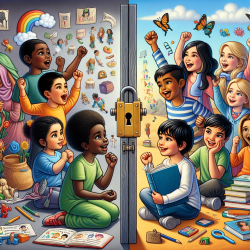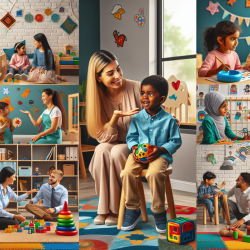Developmental Language Disorder (DLD) is a neurodevelopmental disorder that significantly affects language comprehension and expression, posing a considerable challenge for children learning to read. A recent study, "Reading Strategies for Children with Developmental Language Disorder," has provided new insights into how these children can be supported in their reading journey. Here, we explore the key findings and practical strategies that can be implemented by practitioners to improve reading outcomes for children with DLD.
Understanding the Keyword Strategy (KWS)
The study reveals that children with DLD often employ a keyword strategy (KWS) to read sentences. This strategy involves focusing on words with strong semantic content (nouns, verbs, adjectives) while overlooking function words (prepositions, conjunctions). For example, in the sentence "Luis reads very well," a child using KWS might focus on "Luis," "reads," and "well," ignoring the function word "very."
Why the Keyword Strategy Matters
Understanding the KWS is crucial because it highlights a compensatory mechanism used by children with DLD to make sense of text despite their linguistic limitations. This strategy allows them to grasp the general meaning of sentences, albeit with potential inaccuracies. The study found that children with better reading skills among those with DLD were more likely to use the KWS, suggesting it can be an effective interim strategy while other skills are developed.
Practical Implications for Practitioners
To support children with DLD in their reading development, practitioners can consider the following strategies:
- Explicit Teaching of Function Words: Incorporate activities that focus on the recognition and use of function words to enhance syntactic understanding.
- Semantic Contextualization: Use context-rich reading materials that help children infer meaning and practice the KWS effectively.
- Multi-Sensory Approaches: Employ visual, auditory, and kinesthetic activities to reinforce word recognition and comprehension.
- Individualized Reading Plans: Tailor reading interventions to the child's specific strengths and weaknesses, using data-driven assessments to guide instruction.
Encouraging Further Research
The heterogeneity of reading profiles among children with DLD suggests that further research is essential to understand the full range of strategies these children use and how they can be supported most effectively. Practitioners are encouraged to stay informed about the latest research and consider participating in studies that contribute to this growing body of knowledge.
To read the original research paper, please follow this link: Reading Strategies for Children with Developmental Language Disorder.










